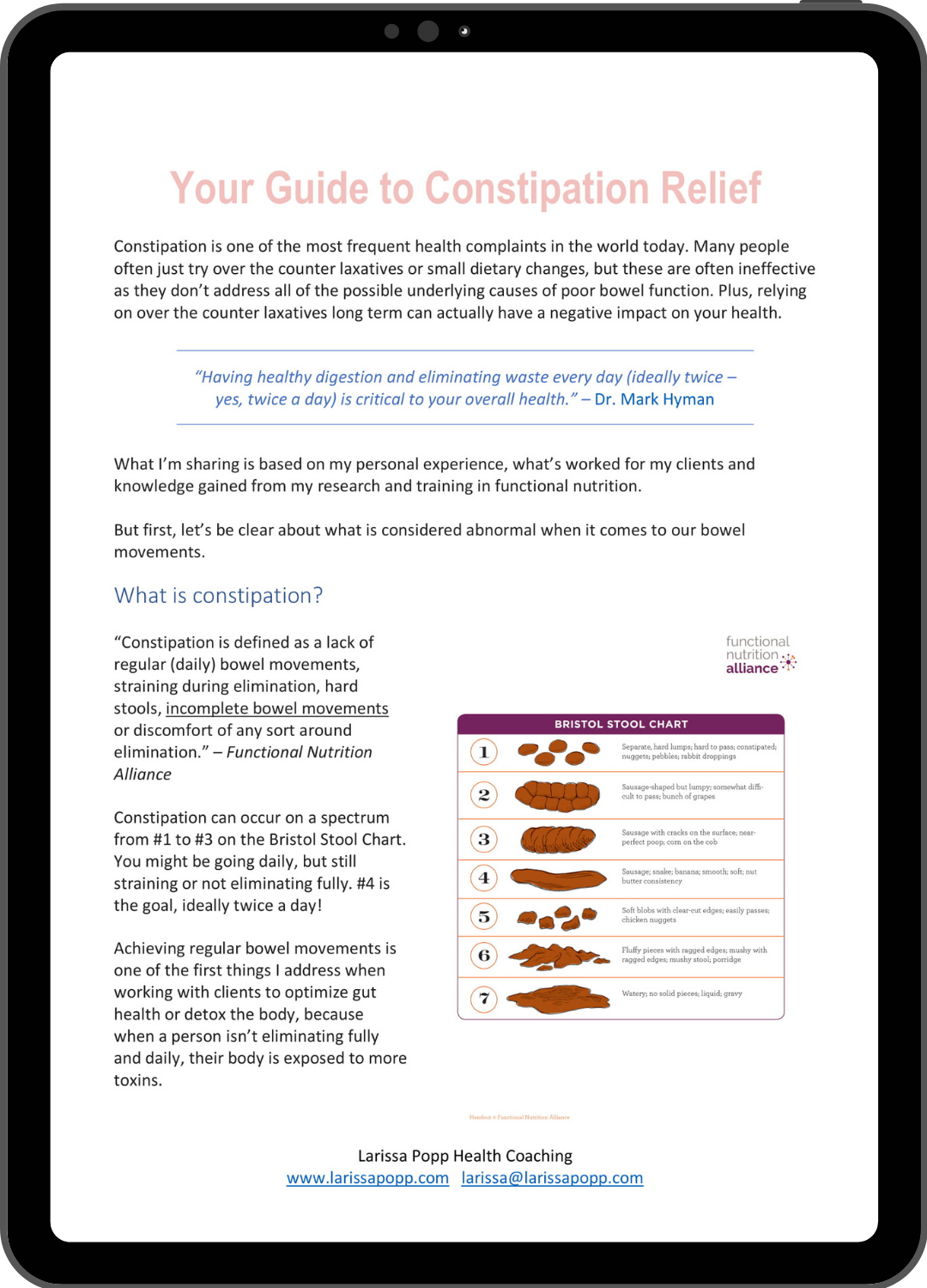When I moved to Japan years ago after finishing undergrad I started gaining weight for the first time in my life but didn’t notice it at all because it was gradual. It wasn’t until my brother visited me and then said something to my mom, who then mailed me a scale – from the U.S. to Japan! Entirely out of love (and I am thankful to her for it!), as a gentle message that I perhaps needed to give more attention to my health.
Tracking your weight can be one vital sign to assess your general physical health status, but here are the best vital signs you should be tracking regularly according to Dr. Mark Hyman, and the optimal values for each, according to functional medicine.
Remember, most standard reference are based on 95% of the population — that is what’s considered “normal” in conventional medicine. You want to strive for optimal!
Heart Rate
Optimal is 60-80 beats per minute, Normal is 60-100 beat per minute.
How fast your heart is beating is both a reflection of your cardiovascular health as well as stress. It can tell you whether you’re in a constant state of “fight or flight” (your sympathetic nervous system) which doesn’t allow you to rest, digest and repair.
Most doctors will only flag this if you have a heart rate above 100; however, if you have a heart rate higher than 80, that also puts you at increased risk for heart disease. (1)
Besides poor cardiovascular health and stress, other potential causes of a high heart rate are: too much coffee, an overactive thyroid, dehydration, anxiety, low magnesium, or being out of shape.
Dr. Hyman considers a heart rate between 60-70 to be ideal.
Heart Rate Variability
This reflects the health of your autonomic (or, automatic) nervous system, which controls all the subconscious processes of your body such as digestion, heart rate, breathing, etc. You want lots of variability, the higher your HRV the better. Most doctors will not measure this, but you it yourself with different apps and devices. Exercise, meditation, yoga, saunas, hot-and-cold therapy, all will improve your heart rate variability. One device I’m planning to get on my next trip home to the U.S. is the Oura ring — which is best known as a sleep tracker, but also tracks HRV. (1)
According to Harvard Health, the easiest and cheapest way to check HRV is to buy a chest strap heart monitor (check out Polar or Wahoo) and download a free app (such as Elite HRV) to analyze the data. The chest strap monitor tends to be more accurate than wrist or finger devices. (2)
Check your HRV in the mornings after you wake up, a few times a week, and track for changes as you work on improving your health.
Blood Pressure
Optimal is 110/60-129/79, Normal is less than 130/80.
Normal blood pressure limit keeps changing because what we keep finding is that what we used to think of as normal, first 140/90, then 130/80, is still correlated with higher risk of stroke and heart attack. Therefore, if your doctor takes your blood pressure and says you’re okay, make sure you ask what your reading was as he/she may only mention your blood pressure if it’s over 130/80 which is still not optimal, and may not say anything if your blood pressure is too low.
Blood pressure is an important marker of health because when it’s elevated it puts extra pressure and demand on your arteries and heart, which can lead to heart disease, or stroke, or heart failure, or even kidney failure. Your blood pressure can also impact your brain, kidneys, and eyes.
It’s important to track your blood pressure year after year so you can see if your blood pressure is starting to creep up. According to Dr. Hyman, the ideal blood pressure is now thought to be under 120/80, but it may turn out to be even lower. He has a blood pressure of 110/70 which he considers good — he actually practices what he preaches (unlike some doctors).
But what if your blood pressure is too low?
A blood pressure below 100/60 may be problematic if there are symptoms associated such as fatigue, dizziness when you stand up, feeling weak, brain fog. Both chronically low blood pressure and chronically high blood pressure may contribute to an increased risk of dementia. You need enough blood pressure to get adequate amounts of blood to your brain, which means adequate oxygen and nutrients. (1)
And in case you’re wondering what the two numbers mean: the top number is systolic, that’s the pressure when the heart is contracting, and the bottom number is diastolic, the pressure when the heart is at rest, or relaxing.
Waist-to-Hip Ratio
Optimal is <.8 for women and <.9 for men. Measure your waist around your belly button and measure your hips at the widest part. Divide your waist measurement by your hip measurement to get your wait-to-hip ratio. This is a much better metric than BMI.
The earlier that you become aware of changes in these vital signs out of the optimal range, the easier it will be for you to course correct.
And when I say “course correct” I DO NOT mean focusing on weight loss to “get healthy” (and simply limiting calories without any change in food quality, such as weight watchers), but you should be improving the QUALITY of your foods to get healthy with weight loss following naturally.
I recently helped one of my client lose 19kg (42lb) over 8 months, using this approach – and she never felt deprived. She also had way more energy and focus and a better mood! She came to me with weight loss as her #1 goal, but was surprised by all the other positive changes she experienced! She had struggled to lose weight since she was a teenager through diet changes and sports, but nothing ever worked. She had tried many “diets” in the past and apps like Noom, and none of that worked.
She shared that the support and accountability from me, as her coach, and the different approach I took — which focused more on adding in more health-promoting foods and habits, and focusing on gut health and hormonal balance, along with education — enabled her to finally create a new lifestyle that she’s confident she can maintain. Now that she has experienced how good it feels to be healthy, she isn’t tempted by the unhealthy foods she used to eat.
If you’d like my support as well, you can schedule a free consultation with me here to learn more.
And if you’d like to hear her full testimonial, you can watch it here.
References:
1. Hacking your Healthcare, Commune Course with Dr. Mark Hyman, MD
2. Heart Rate Variability – A new way to track well-being, Harvard Health Blog, by Marcelo Campos, MD


